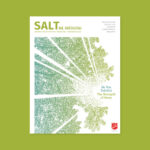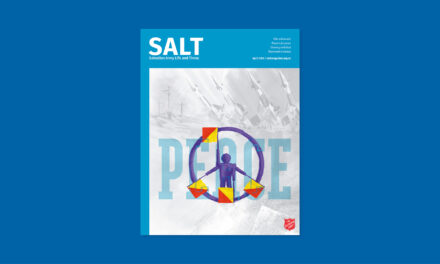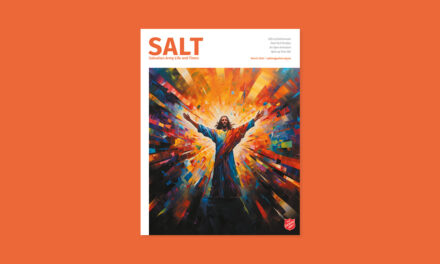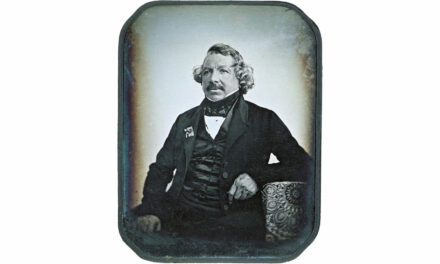
The Days of Elijah

In part two of a three-part series Colleen Marshall examines how the issues facing the prophet Elijah in his day are similar to the challenges facing Christians today. She asks: What is God calling his people to do?
(Read Part 1 – Days of Noah, Days of Grace)
For the past two decades the anthem of worship, ‘These are the days of Elijah’ has been sung in many churches. What a bold declaration of hope in the midst of turbulent times, as we look forward to the triumphant return of Jesus Christ, who will come riding on the clouds at the trumpet call (Matthew 24:27–31).
Last month in part one, we looked at the days of Noah, an age in which lawlessness was rife. Noah was a lone voice taking his stand for righteousness. God told Noah to build an ark to save people from the coming flood, but no one heeded his warning. It was ‘business as usual’ until the flood came and destroyed the earth. The ark was built in plain view of all, but tragically the mockers perished as a consequence of their own choices.
Today we hear of humanity being fallen, rather than sinful. It seems more palatable and makes for less accountability. But the Bible states, ‘For all have sinned and fall short of the glory of God’ (Romans 3:23).
Elijah was a prophet, called to remind the people of God’s covenant and expose the state of the nation in which he lived. They had fallen far short of the Torah, God’s law. He lived around 850 BC and first appears in the Old Testament in 1 Kings 17. The nation of Israel had veered far from God’s holy plumbline, and it was full of idolatry, immorality and corruption. King Ahab had arrogantly provoked the anger of the Lord for more than 22 years, worse than any other king of Israel (1 Kings 16:29–33). He abandoned the temple and worship of Jehovah God, setting up altars for idols Baal and Ashtoreth.
God told Elijah to warn the king that a drought was imminent, with no rain for three years. God then hid Elijah under the radar, miraculously providing for him.
The drought occurred as Elijah had said and the whole land suffered the impact of climate change: the rivers dried up, crops failed, the famine affected both palace and peasant alike. The people blamed the king, the king blamed the prophet. Enraged, he finally sought for Elijah. Where was that troublemaker? King Ahab felt no ownership whatsoever, he hadn’t made the connection that when he dishonoured God, he turned away. God would not be mocked; he reaped what he sowed.
In King Solomon’s day God had pointed to a time when, if he ever shut the heavens and famine hit the land, he says ‘if my people, who are called by my name, will humble themselves and pray and seek my face and turn from their wicked ways, then I will hear from heaven, and I will forgive their sin and will heal their land’ (2 Chronicles 7:14).
Summons to a showdown
God told Elijah to summon the king and the nation to a showdown on Mt Carmel. ‘Elijah went before the people and said, “How long will you waver between two opinions? If the LORD is God, follow him; but if Baal is God, follow him”’ (1 Kings 18:21).
Parameters were set. The prophets of Baal would go first and set up an altar, sacrifice a bull, and call on their god to answer, then Elijah would do the same. The God who answered by fire was the one true God. The 450 prophets of Baal ranted all day long. They gored themselves with knives, pleading with their idol to answer. Nothing—no response (1 Kings 18:28–29).
Elijah rose up. He summoned the people and asked them to come over to him. The altar of the Lord was in ruins, a disgrace. They hung their heads in shame. They’d lamented the sorry state of the nation, the corruption, land wars and poverty, but never joined the dots. The world wasn’t broken, they had forsaken the living God and had to own their sin.
Elijah repaired the altar by taking twelve stones, one for each tribe. Feel the tension of that moment, the grief. Many in their lifetime had never heard the Torah. They didn’t know their identity as God’s covenant people. They’d never seen the power of the living God, their deliverer. The stories from long ago were impossible to relate to.
In full view of the crowd, Elijah rebuilt the altar, laid the sacrifice, dowsed it in water, then simply worshipped—raising his arms and calling on the Lord of heaven to show his glory. It was a breathtaking moment. In a spectacular demonstration of God’s power, flames flashed down from heaven, licked up the water and burnt up the bull, and the people fell on their faces declaring that the Lord was God.
True allegiance
What an encounter! Something ignited in the people that day, a new passion to know God, to serve and follow him. They repented of their failures and felt new hope for the future. They would no longer compromise with idols but be true to the Lord God of Israel.
If these are the days of Elijah, as the song goes, what is God saying to his people today? Where are the Elijahs who can discern the spiritual climate of the church and of our nation? We lament the moral decay, the mockery of biblical truth, the devaluing of life in the weak and infirm, aged and unborn. Is there a famine of hearing the whole counsel of God in favour of feel-good, ear-tickling sermons that appease the conscience? In Elijah’s day they failed to acknowledge that God had withdrawn his blessing because of their tolerance for other gods. It took a famine and food crisis to bring people to their faces before God.
This year has been an election year in New Zealand. Many wavered about who to vote for right until the last minute. Spiritually, God is recruiting his ‘party faithful’, those with true allegiance to him. Those unashamed to stand for righteousness, truth and the gospel of Jesus Christ, and those willing to be a voice in the wilderness preparing the way of the Lord.
Behold he comes!









